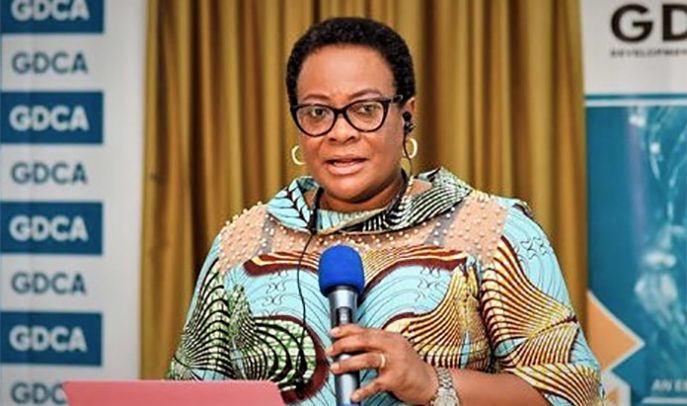Mary Awelana Addah, Executive Director of Ghana Integrity Initiative
Ghana’s standing on the global Corruption Perceptions Index (CPI) has declined slightly from a score of 43 to 42 in the 2024 ranking.
In a release issued on Tuesday, February 11 by the Ghana Integrity Initiative (GII), the local chapter of Transparency International said despite several efforts to address this menace, Ghana’s performance on the Corruption Perceptions Index is still below the average of 50 out of a 100 clean score.
It said, “Ghana has scored 42 out of a clean score of 100 in the CPI 2024, ranking 80th out of 180 countries and territories assessed in this year’s report released by Transparency International (TI). This marks a decline from Ghana’s score of 43 in 2023, signaling a setback in the country’s anti-corruption efforts.”
“With a score of 42, Ghana ranks 11th among 49 Sub-Saharan African (SSA) countries included in the index, alongside Albania, suggesting that the policy, legal and administrative reforms require further review,” it stated.
According to the report, since 2015, following a 10-year trend, Ghana has dropped 5 points on the Corruption Perceptions Index, reflecting persistent challenges in tackling corruption despite various policy interventions and institutional reforms.
“Ghana’s performance is behind regional leaders such as Seychelles, 72; Cape Verde, 62; Botswana, 57; Rwanda, 57; and Mauritius, 51, who scored above 50 but ahead of countries like Burkina Faso and that of South Africa and Tanzania who all scored 41,” it added.
The CPI 2024 further highlights a worrying trend with over two-thirds of countries worldwide scoring below 50, indicating serious corruption problems in the public sector while the global average remains at 43.
That, according to the report, showed little progress over the past decade, attributing this to weak democratic institutions, ineffective law enforcement, and inadequate anti-corruption frameworks.
Chair of Transparency International, François Valérian, said, “Corruption is an evolving global threat that does far more than undermine development. It is a key cause of declining democracy, instability and human rights violations. The international community and every nation must make tackling corruption a top and long-term priority.”
It recommended the Legislature to enhance its oversight role, depoliticisation by the President of the civil and public services by instituting a merit-based appointment system overseen by an independent civil and public service commission.
The report also recommended that the Executive prioritise the passage of the Conduct of Public Officers’ Bill to strengthen the legal framework on asset declaration, conflict of interest, and sanctions for non-compliance.
“The Judiciary should establish a specialised anti-corruption court to handle corruption-related cases with speed and efficiency like in the case of Tanzania. This dedicated court should have well-trained personnel with expertise in anti-corruption,” it added.
Over the past decade, corruption remains a critical governance issue influencing citizens’ decisions on the performance of governments across the globe. Despite several efforts to address this menace, Ghana’s performance on the Corruption Perceptions Index is still below the average of 50 out of a 100 clean score. Ghana has scored 42 out of a clean score of 100 in the CPI 2024, ranking 80th out of 180 countries and territories assessed in this year’s report released by Transparency International. This marks a decline from Ghana’s score of 43 in 2023, signaling a setback in the country’s anti-corruption efforts.
By Ebenezer K. Amponsah


